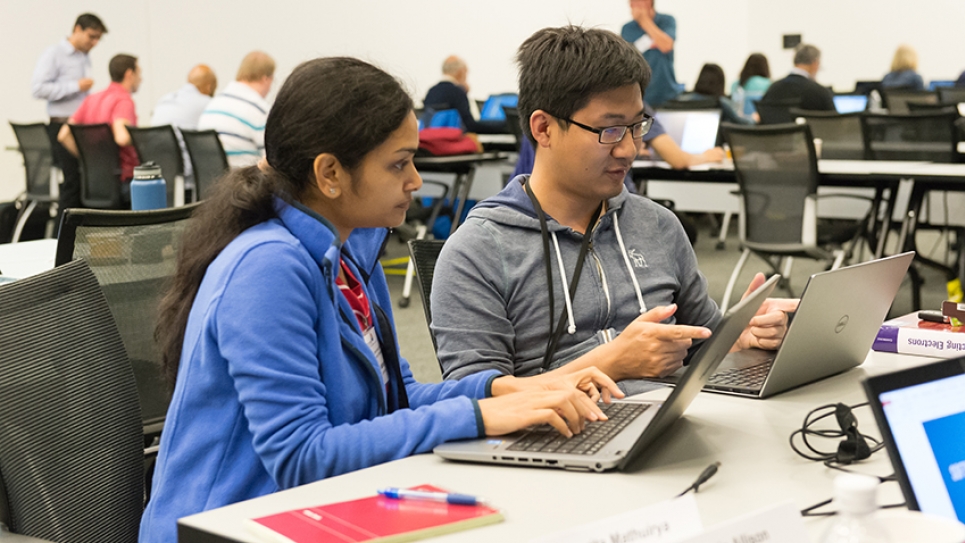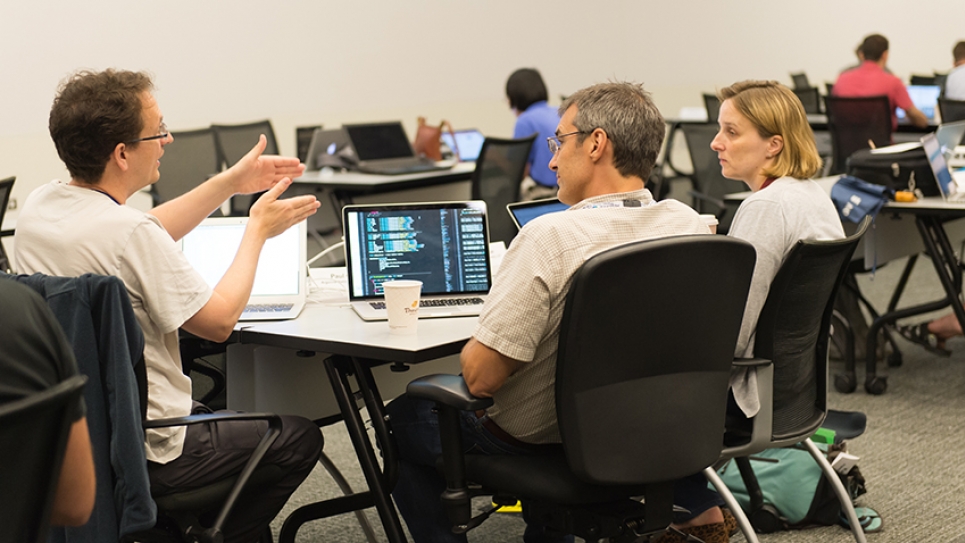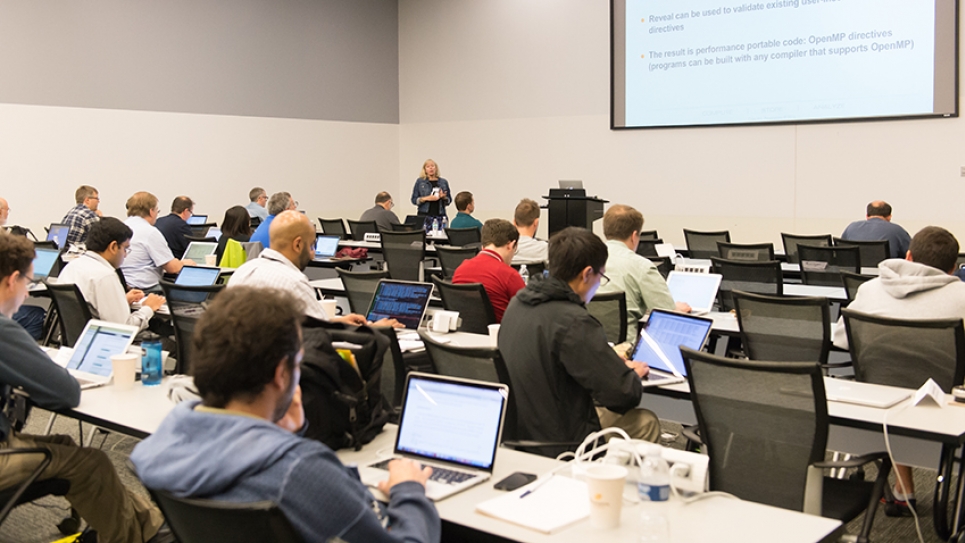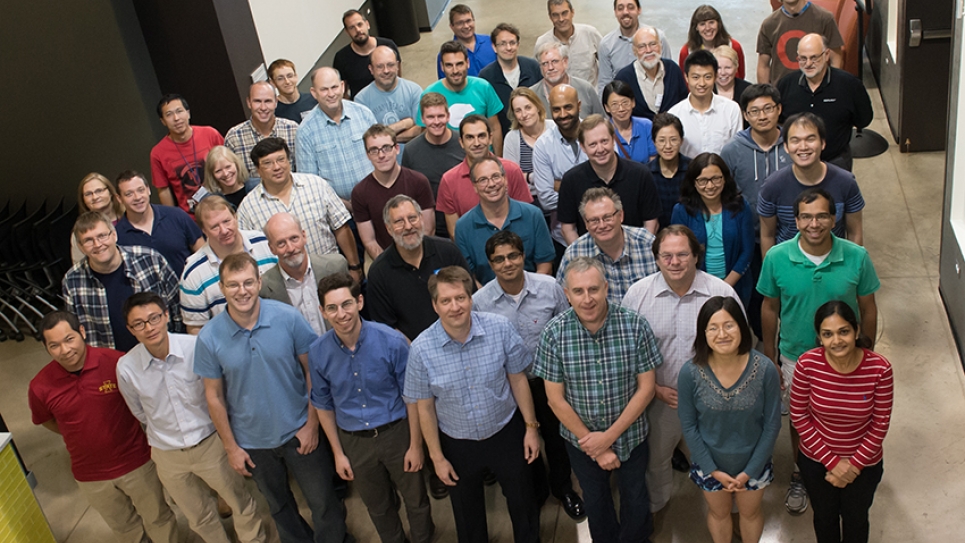
Early science teams prepare for Theta at hands-on workshop
From Aug. 16-19, the Argonne Leadership Computing Facility (ALCF), a U.S. Department of Energy (DOE) Office of Science User Facility, hosted researchers from its Theta Early Science Program (ESP) for a hands-on workshop to help them port, benchmark, and optimize their applications on the facility’s next-generation Intel-Cray system.
“This workshop gives ESP teams an opportunity to work directly with ALCF staff, as well as experts from Intel and Cray, to get their codes running on the actual machine,” said Tim Williams, ALCF Deputy Director of Science.
Theta, an 8.5 petaflops system based on Intel’s second generation Xeon Phi processor, was delivered to Argonne earlier this summer and is currently going through acceptance testing. The new system is intended to serve as a bridge between the ALCF’s current supercomputer, Mira, and its next leadership-class supercomputer, Aurora, which is scheduled for delivery in 2018.
The ALCF’s Early Science Program is designed to prepare users for the facility’s new supercomputers, ensuring that projects and codes are ready to make good scientific use of the systems on day one. By bringing together computational scientists, code developers, and computing hardware experts, the program creates a collaborative environment for optimizing key applications on Theta, and solidifying libraries and infrastructure to pave the way for other applications to run on the system.
The four-day Theta ESP workshop included two half days of instruction from Intel and Cray on their development environments and systems software. For the remainder of the event, researchers dedicated themselves to hands-on, collaborative work.
Attendees measured the scaling of their applications on problem sizes relevant to their proposed science runs. They also received instruction on using the Cobalt job scheduler, Intel and Cray development tools, and other essential information for running on Theta. In addition, the collaborative sessions allowed teams to experiment with the system’s innovative memory hierarchy and try out different code optimization approaches.
Once Theta is accepted, ESP teams will begin running science simulations on the system to pursue their research goals, which range from modeling the brain to simulating the evolution of the universe. When the early science period is completed, each team will produce a technical report detailing their efforts to port and optimize their codes for Theta. They will present their results at a wrap-up workshop open to the entire ALCF user community.
“In addition to providing some valuable lessons learned for all users, we expect our ESP teams will produce some exciting science results that demonstrate what’s possible with Theta’s advanced capabilities,” Williams said.
Argonne National Laboratory seeks solutions to pressing national problems in science and technology. The nation's first national laboratory, Argonne conducts leading-edge basic and applied scientific research in virtually every scientific discipline. Argonne researchers work closely with researchers from hundreds of companies, universities, and federal, state and municipal agencies to help them solve their specific problems, advance America's scientific leadership and prepare the nation for a better future. With employees from more than 60 nations, Argonne is managed by UChicago Argonne, LLC for the U.S. Department of Energy's Office of Science.
The U.S. Department of Energy's Office of Science is the single largest supporter of basic research in the physical sciences in the United States and is working to address some of the most pressing challenges of our time. For more information, visit the Office of Science website.


